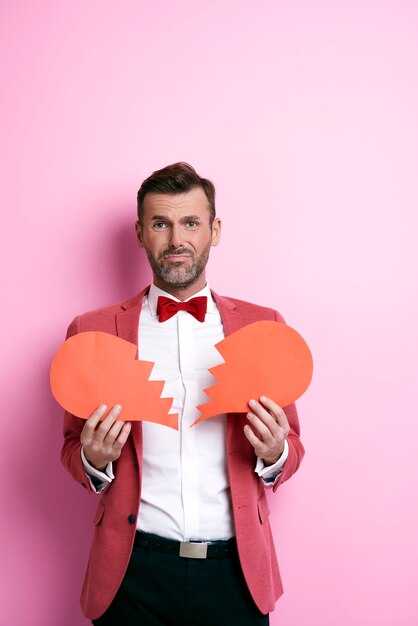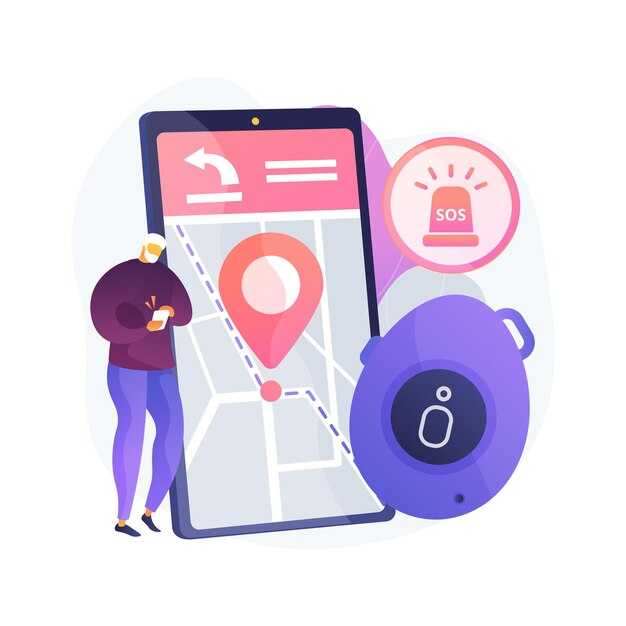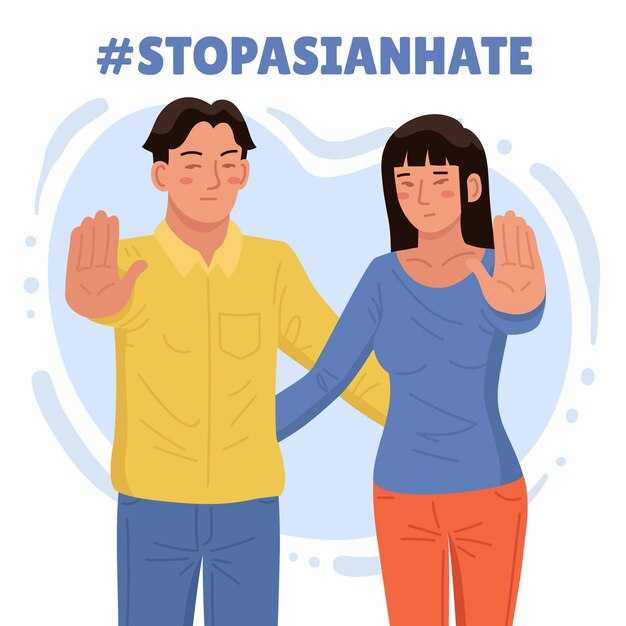You’ve endured enough silence in your life, haven’t you? That heavy, unsettling quiet that follows their disappearance — the rooms that still seem to echo with their voice. You kept glancing at your phone, clinging to the faint hope that maybe, just maybe, a message would appear. Days slipped into weeks, weeks into months, and eventually you convinced yourself it was over. They were gone. They had moved on. You learned to steady yourself and to pretend you were okay.
But there’s something most people never understand about avoidant people: they don’t always stay gone. They flee. They hide. They retreat into the shadows of their fear. And yet the story doesn’t finish there. While you sit in silence, trying to mend, something begins to shift inside them — something they can’t quite label. The very person who once begged for space, who distanced themselves from your love, presence, and energy… begins to feel again. This time confusion is theirs.
At first they believed losing you would bring relief, believing solitude would feel like freedom. But freedom rings hollow when the quiet grows deafening. What you may not realize is that you became a mirror for their emotional fears. You taught them what real visibility looks like — and that terrified them. So they did what avoidant people do best: they pulled away before they could be hurt. But here lies the contradiction: the emotional distance they created to shield themselves is exactly what begins to wound them on your behalf. They start to wonder, “What if I pushed away the one person who really understood me? What if this silence is punishment, not peace?”
That’s where things begin to change. While you relearn how to breathe without them, how to find yourself again, how to walk without relying on their approval, they feel the weight of the very space they carved out. It’s suffocating. Strange, isn’t it — the person who couldn’t handle closeness now feels the emptiness. The one you once begged for attention has grown quiet, then calm, and finally strong. This is the turning point. The avoidant didn’t run from you; they ran from themselves.
Every relationship with an avoidant follows a pattern — a quiet dance of closeness and withdrawal, of love and fear. Most people only witness one side. They assume the chase ends once the avoidant leaves. But what if that departure is actually where the real pursuit begins? You don’t need to coerce them back. You only need to stop chasing. Stop pursuing someone who is already fleeing from their own feelings. In that vacancy, their fear slowly begins to transform into longing. You’re about to see a side of them you thought didn’t exist.
First you must understand why they ran in the first place. Dive into their mind for a moment. Without appreciating their emotional makeup you’ll keep blaming yourself for their distance. Here’s what’s really happening: avoidant people long for connection like anyone else. They dream of love, warmth, and closeness. But when it arrives, their system panics. Closeness feels dangerous, not safe. Somewhere in their past, love equaled pain — inconsistent, conditional, or accompanied by regret. Each time they opened up, someone made them repent it. So when they are truly seen, their instinct isn’t to lean in — it’s to run. Not because they don’t care, or don’t love you, but because love stirs everything they spent their life avoiding.
Think about it: when you text them, reach out, show vulnerability, they don’t see openness; they feel pressure. They sense a loss of control, and control is everything to an avoidant — it feels like safety. So they create distance: fewer messages, shorter replies, less eye contact, and then sudden silence. You sit wondering, “What did I do wrong?” The truth is you did nothing. Their withdrawal is not a measure of your worth; it’s an expression of their fear. They tell themselves stories — “I just need space,” “I’m too busy,” “I’m not ready for a relationship.” Deep down they are fleeing emotional exposure. And the irony is the harder you pull, the farther they go. It’s like an invisible emotional rubber band: the more you stretch, the more it snaps back until it finally separates.
Here’s a crucial truth no one tells you: every time that elastic stretches, tension builds on both sides. When you finally stop pulling — when you stop contacting, stop begging for closure, stop trying to fix things — that tension doesn’t vanish. It turns inward. That is why silence hits so hard: it deprives them of any emotional cue to battle against. It forces them to sit with the very feelings they were running from. Suddenly they start to miss what they believed they could do without. Old memories surface — your laugh, your patience, the way you made them feel safe when they didn’t know how to accept it. They’ll quietly check your social media, scroll through photos, and wonder if you’ve moved on. They won’t admit it; pride shields them. But change begins.
Avoidants often don’t realize the value of what they had until their emotional control is pulled from them. When you step back peacefully instead of chasing in desperation, their mind panics because you’re no longer playing the role they expected. You don’t beg, you don’t plead, you don’t prove your love anymore. You simply leave. That calm absence speaks louder than any argument. It communicates: “I won’t beg to be chosen. I won’t fight to be loved.” That kind of self-respect shakes them at their core. Now it’s them who can’t stop thinking about you. They feel small, uncertain, and lost. This isn’t punishment — it’s balance. The universe reminding them of what they forgot. You can’t keep running from love and expect peace. Avoidants pursue when they feel security is threatened not in the relationship, but in its absence.
The more emotionally steady you become, the more they begin to crave the very thing they once resisted. That’s why your silence is not weakness; it’s a tactic. It’s healing wearing armor. When you stop trying to pull them in, you cease feeding their fear. You become unpredictable. To an avoidant mind, unpredictability equals curiosity. They start to ask why you no longer reach out. Did you stop caring? Have you found someone else? In that questioning the real chase begins because you flipped the dynamic. They no longer feel pursued; now they feel the emotional distance — and they want to bridge it.
So if you’re sitting wondering, “What should I do about this avoidant person?” here’s the answer: do nothing. Don’t post to make them jealous. Don’t break your silence to prove a point. You have already done your part. You cared, you tried, you loved. Now the silence completes the work. Whether they acknowledge it or not, they’re beginning to feel drawn back. Sooner or later they will chase the connection they once fled. At first they won’t see it coming. Your quiet will feel strange and uncomfortable. They’ll tell themselves they’re fine, distracting themselves with work, friends, or endless scrolling. But every distraction leaves a hollow ache. Laughter becomes hollow because something inside knows they pushed away something real. That idea lingers.
Initially they’ll rationalize to soothe their guilt: “I was too emotional, too clingy.” But logic starts to crumble. If you were “too much,” why do they miss your presence in quiet moments? Why does your absence echo in places you never shared? Why do they replay your voice in their head at night? Slowly silence becomes a mirror, reflecting everything they hid from themselves. The emptiness they feel isn’t about you — it’s about them. The part that never learned how to stay close without feeling trapped. The part that runs to avoid pain and doesn’t know how to accept peace.
When you finally let go — not out of anger or pride but from acceptance — something inside them begins to crack. They notice the quiet, your absence, the way your energy no longer reaches them. It isn’t loud or dramatic; it’s gentle, and deeper than any dispute. Avoidants process emotions differently: not with tears or immediate conversations, but in waves of realization that hit them unexpectedly — driving alone at night, passing the café where you used to sit together, and suddenly your face floods their mind. They feel a small, unbearable ache. They scroll through old messages without replying. They glance at your latest photo or story but don’t comment. Pride and fear hold them back, but curiosity keeps pulling them. They want to know if you’ve moved on, if you still think about them, and that curiosity quickly becomes anxiety. They replay conversations, analyze every word, and begin to question whether they or you were the problem.
The more you remain silent, the heavier the weight of their actions becomes. You are doing nothing, yet you accomplish everything. Your absence becomes forceful. You stopped chasing, and they now chase the memory of what they lost. They battle within themselves, torn between ego and longing. Eventually longing usually wins — no matter how far they ran, they couldn’t escape the truth. They didn’t lose you when they left; they lost themselves. That’s when the real chase begins — not because you wanted it, not because you planned it, but because your healed heart became unforgettable. You became the peace they cannot find elsewhere.
Then the silence becomes unbearable. They pick up their phone, type your name, hesitate. “It’s too soon,” they tell themselves, and put it down — then return ten minutes later. They write something, delete it, rewrite, delete again. This battle between pride and pain is ongoing. They may tell themselves they only want to check on you, but deeper than that is longing. They miss your presence, your voice, the effortless safety you gave them. It drives them to madness that you didn’t chase them back. They expected you to wait; this time you didn’t. That changed everything. Eventually they send a small, seemingly insignificant message: “Hey, how are you? Saw something that reminded me of you.” Simple words that carry hidden weight.
They test the waters, searching for any sign that the door remains open, that your heart is available. When you don’t reply immediately their stomach drops. The panic starts. For the first time, they replay every memory and mistake. Silence, once comforting, now feels like a punishment. Space they once wanted now seems like rejection. They learn a bitter lesson: peace only feels peaceful when shared with the right person — and they remember you were that person. They’ll find excuses to reconnect — a trivial question, a casual remark — their messages may seem casual but their heart races beneath each one. They hope you’ll respond, hope you still care, hope it’s not too late.
When you finally respond — calm, confident, unbothered — the power dynamic shifts completely. You are no longer the person who waited; you have changed. You’ve grown. You know how to live without them. Your quiet confidence radiates through your words: no pleading, no oversharing, no need to prove anything. You simply exist — peaceful, steady, strong. That version of you hits harder than any apology. They immediately notice the transformation. You don’t chase emotionally any longer. You aren’t tiptoeing for their attention. You are free. That freedom makes you magnetic because the avoidant’s deepest fear — losing control — is now accompanied by something greater: the loss of their emotional dependence on you. They once felt powerful when you needed them; now your peace reveals what true strength looks like.
They will try to draw you back the same way they used to, with nostalgia, charm, and half-truths. They will bring up the past and perhaps offer apologies, sometimes subtle. “I’ve been thinking about you,” or “I didn’t realize how much you mattered until you were gone.” But you will sense the difference: these words come from a place of wanting, not need. You understand that their return isn’t about your worth; it’s about their reckoning. This is when you must stay grounded. The old you may have taken this as a sign to dive back in, but the healed you knows that stability requires more than sentiment. Love isn’t proven with words in lonely moments; it’s proven through repeated actions in times of fear.
For avoidants, this is the ultimate test: can they remain close when it becomes real again? Whatever they choose next, you have already won by breaking the cycle. You stopped chasing and made them face what they were running from. Your silence forced their self-examination — something no one else could do for them. You became the mirror they needed. Even if they don’t change immediately, you’ve planted a seed. Next time they try to pull away from someone, they’ll remember the ache, the regret, the longing — and they’ll remember you. You became a lesson, not through vengeance, but because you chose peace and stopped pleading for love. You started to embody love itself, and that energy lingers.
Sometimes they return fully, promising change and claiming realization. Maybe they have changed; time and distance can soften defenses. Other times they reach out to ease their guilt and test whether you still care. Trust your instincts. Don’t be swayed by words alone — watch for growth. Has their behavior shifted? Have they confronted their fears or are they still dancing around them? Real change requires discomfort, and most avoidants only grow when they lose something they assumed would always be there.
Here’s the beauty: you no longer need to control the outcome. Whether they come back or not, your peace remains intact. You’ve moved from chasing connection to embodying it. You stopped trying to earn love, and that change alone alters your entire energy. People sense it. The world senses it. Even they sense it. There’s something irresistibly attractive about someone who no longer needs to validate their worth through others. When you stop being a mirror for someone else’s approval and become the source of your own acceptance, you pull them back — not because of your sadness or longing, but because of your calm. That calm that says, “I’m okay with or without you” is the force that brings them chasing.
Avoidants may have believed they held control, but love doesn’t work that way. Love isn’t about control; it’s about truth. The truth is they never truly stopped caring — they lost touch with themselves. They fled from vulnerability, intimacy, and the pieces of themselves that felt raw. When your silence revealed the depth of absence, they learned that running doesn’t protect them; it isolates them. Now they stand where you once stood: uncertain, unsettled, wishing things were as they were. They will remember how you looked at them when you still believed, how you tried to reach them during their emotional distance, your patience, kindness, and understanding. Those memories will hurt because they realize they took them for granted.
You, however, rose above that pain. You rebuilt, piece by piece, and stopped letting others’ fears dictate your peace. That resilience is yours forever. You no longer need to force closure — your healing is closure. You don’t owe apologies for stepping away; your silence delivered justice. You don’t need validation because you proved yourself. That makes you untouchable in a way they will feel. They will sense the quiet strength, the glow of someone who found peace through pain. They’ll notice your energy no longer reaches them, and it will affect them more than any speech ever could. People always feel the absence of the energy that nourished them. They’ll realize, too late, that love isn’t easily replaced. A connection like that doesn’t vanish; it echoes, following them through new relationships and moments of silence. They’ll keep searching for someone who offers what you once did so freely, but rarely will they find it again — love born from peace rather than fear is rare.
So when they do come after you — and they likely will — don’t rush to meet them halfway. Let them go through their storm. Let their silence trouble them. Only when they confront that emptiness can they truly appreciate the value of connection. You did your part: you loved, you gave, and when it was time, you let go. The rest is theirs. Even if they never return, you didn’t lose. You won by learning to love without losing yourself. You won when you recognized silence wasn’t the end but transformation. Sometimes the universe removes people not as punishment but to reorganize your life, clearing out the unstable so you can rebuild on firmer ground.
Perhaps this avoidant person is already beginning to pursue you. Perhaps they are about to. But the real chase isn’t about reclaiming you. It’s about their attempt to rediscover the version of themselves they abandoned when they pushed you away. As they pursue, you will realize something beautiful: you no longer need rescuing. You have outgrown the version of yourself that scavenged for scraps of attention. You’ve moved beyond the cycles of confusion and emotional games, beyond needing to be chosen by someone who cannot even choose themselves. This realization — powerful, serene, and liberating — is where your true story begins.
The real ending isn’t their return. The real ending is you standing in peace, whole and steady, watching them understand too late what you always knew: your love was never the problem — their fear was. When they finally chase you, smile — not in triumph but in comprehension. Because silence didn’t just make them come after you; it helped you find yourself.


 Don’t Know What You’re Gonna Do About This Avoidant Person ..Cause They’re About To Chase You! | J.P">
Don’t Know What You’re Gonna Do About This Avoidant Person ..Cause They’re About To Chase You! | J.P">

 The 5 Stages of a Dismissive Avoidant’s Mind When You Go Silent">
The 5 Stages of a Dismissive Avoidant’s Mind When You Go Silent">
 What To Do When Someone Makes You Feel Creeped Out">
What To Do When Someone Makes You Feel Creeped Out">
 Avoidants Texted You After Silence? This Brutal Reply Will Destroy Them | Jordan Peterson">
Avoidants Texted You After Silence? This Brutal Reply Will Destroy Them | Jordan Peterson">
 Why does the Anxious partner have to sacrifice for the Avoidant?">
Why does the Anxious partner have to sacrifice for the Avoidant?">
 Anxious Attachment leads to Heartbreak until you do this…">
Anxious Attachment leads to Heartbreak until you do this…">
 Скрытая ИСТИНА: Почему Избегающие Относятся к Вам с Неуважением – Как Пройти ИХ ТЕСТ | Стиль Избегающей Привязанности">
Скрытая ИСТИНА: Почему Избегающие Относятся к Вам с Неуважением – Как Пройти ИХ ТЕСТ | Стиль Избегающей Привязанности">
 Интервью с доктором Джеймсом Пеннебекером">
Интервью с доктором Джеймсом Пеннебекером">
 Try These Emergency Measures to Re-Regulate Anywhere">
Try These Emergency Measures to Re-Regulate Anywhere">
 Stop Helping your Wife.">
Stop Helping your Wife.">
 Harsh Signals (You Don’t Realize You’re Sending) Push Men Away">
Harsh Signals (You Don’t Realize You’re Sending) Push Men Away">